Buying into self-driving vehicles: What’s it going to take for autonomous vehicles to become typical on city streets? Perhaps longer than advocates of the advanced technology had hoped for. In a new study by Reuters/Ipsos, half the respondents believe that autonomous 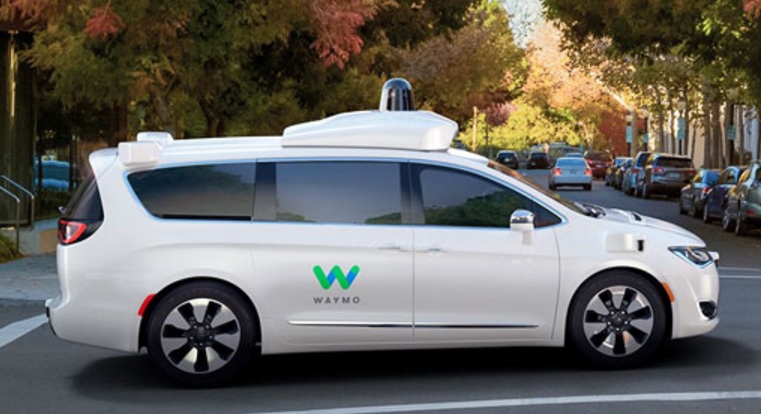 vehicles won’t be as safe as vehicles currently on roads. Nearly two-thirds of the U.S. adults participating in the survey said they would not buy a fully autonomous vehicle, and the same amount balked at the prospect of paying significantly more for the added features. AVs will be staying in the test phase for a few more years. Companies such as General Motors, Tesla, Waymo, Alphabet, Uber, and Lyft, will continue testing the technology and trying out convenient mobility and shared ride experiences for users. Fleets will continue playing an important role in advancement of the technology through projects such as truck platooning, electric automated shuttle vans, and urban delivery showing positive signs of potential for adoption. Safe travel is a key issue, as Tesla and Uber have discovered in fatal incidents involving AV technology in recent years. But as marketers of electric vehicles know, building up mass adoption of a radical new technology takes millions of miles and a few years of positive driver experiences.
vehicles won’t be as safe as vehicles currently on roads. Nearly two-thirds of the U.S. adults participating in the survey said they would not buy a fully autonomous vehicle, and the same amount balked at the prospect of paying significantly more for the added features. AVs will be staying in the test phase for a few more years. Companies such as General Motors, Tesla, Waymo, Alphabet, Uber, and Lyft, will continue testing the technology and trying out convenient mobility and shared ride experiences for users. Fleets will continue playing an important role in advancement of the technology through projects such as truck platooning, electric automated shuttle vans, and urban delivery showing positive signs of potential for adoption. Safe travel is a key issue, as Tesla and Uber have discovered in fatal incidents involving AV technology in recent years. But as marketers of electric vehicles know, building up mass adoption of a radical new technology takes millions of miles and a few years of positive driver experiences.
Electric automated trucks: Speaking of adoption of the new technology, a new report by Wards Intelligence says it will take until the early 2020s for new electric and automated trucks to take root. Medium-duty truck fleets will lead the way in electrification, but “long haul will probably be the last to see electrification because they’ll probably need fuel cells to get the range they need, and those are still in development,” said Megatrends 2019 Trucking author, Jim Mele. Trucking fleets want to see longer range and faster fueling, so fuel cell trucks may have an edge here — with Nikola Motor and Toyota poised to take the lead.
Tesla and SEC dispute settlement and quarterly report: Tesla is still trying to clean up problems that have been building in the past year. Tesla CEO Elon Musk was “very happy” about a federal district court judge telling the company and the Securities Exchange Commission to settle the SEC’s complaint out of court. The SEC asked the court to hold Musk in contempt for violating their previous settlement over a tweet they thought violated rules over what the publicly traded company can divulge or express opinions over. This time around, the SEC filed a complaint in court over a photo musk had posted on Twitter of the electric automaker’s manufacturing plant — that Musk said would be able to produce 500,000 vehicles in 2019; he recanted that tweet, going back to the original forecast of 400,000 units being what the company expects to deliver. Another tough one has been reporting to investors that sales saw a big drop in the first quarter of this year. About 63,000 Tesla vehicles were delivered in the first quarter — a 31% drop compared to the prior quarter and the the largest drop ever for the company. Some commentators have wondered if an April 19th event for Tesla investors on new autonomous vehicle improvements will be an attempt to deflection attention on the poor performance.

 mark for U.S. auto sales in October, it was historic and interesting to see the
mark for U.S. auto sales in October, it was historic and interesting to see the 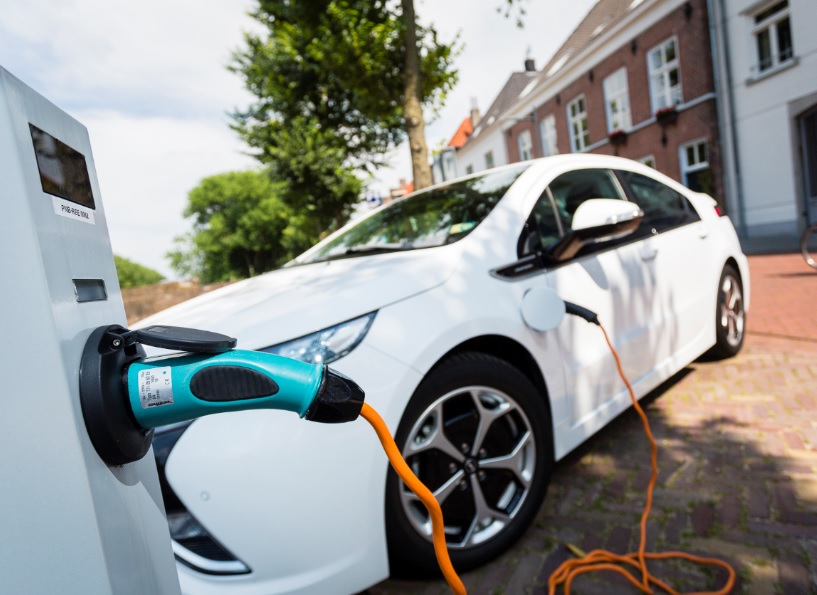 global automakers have committed to spending on electric vehicles, and that total is still growing. That will include at least $19 billion by automakers in the U.S., $21 billion in China, and $52 billion in Germany, according to a Reuters analysis. U.S. and German automakers said in interviews at the Detroit auto show that most of the investments are earmarked for China, where escalating EV quotes will be staring in 2019. Ford executives just announced that 40 electrified vehicles will be launched by the company by 2022 – 16 battery electric and 24 will be hybrid or plug-in hybrid.
global automakers have committed to spending on electric vehicles, and that total is still growing. That will include at least $19 billion by automakers in the U.S., $21 billion in China, and $52 billion in Germany, according to a Reuters analysis. U.S. and German automakers said in interviews at the Detroit auto show that most of the investments are earmarked for China, where escalating EV quotes will be staring in 2019. Ford executives just announced that 40 electrified vehicles will be launched by the company by 2022 – 16 battery electric and 24 will be hybrid or plug-in hybrid.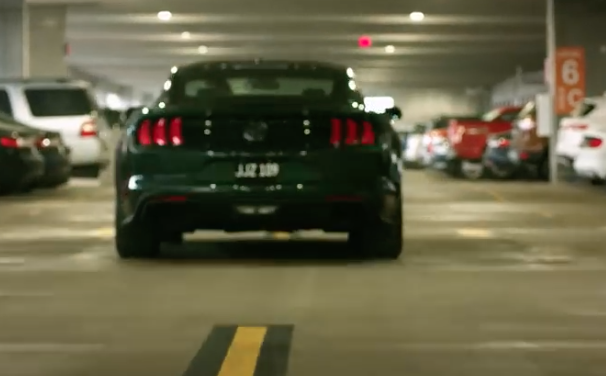 scene ever.
scene ever. 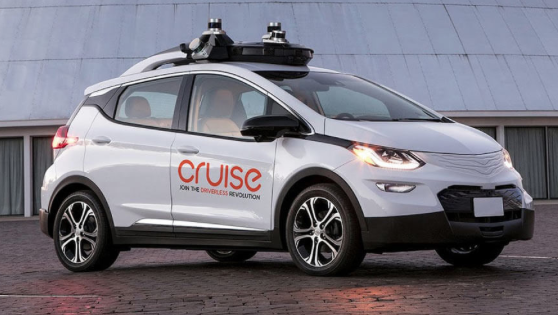 year, according to a petition filed with NHTSA. GM has asked for a Federal Motor Vehicle Safety Standards waiver on 16 rules covering vehicles with human drivers but that don’t apply to self-driving cars. If granted, GM could launch as many as 2,500 autonomous vehicles a year starting in 2019. The automaker described the “Cruise AV” self-driving vehicle in the filing, which is based on the Chevy Bolt and includes fourth-generation AV technology from its Cruise Automation subsidiary. It includes five Lidars, 16 cameras, and 21 radars for safety and functional, efficient driving. GM says its would be a type of robotaxi providing ride-hailing services. GM’s Maven carsharing division and its investment in Lyft could provide channels for bringing these electric, autonomous rides to customers.
year, according to a petition filed with NHTSA. GM has asked for a Federal Motor Vehicle Safety Standards waiver on 16 rules covering vehicles with human drivers but that don’t apply to self-driving cars. If granted, GM could launch as many as 2,500 autonomous vehicles a year starting in 2019. The automaker described the “Cruise AV” self-driving vehicle in the filing, which is based on the Chevy Bolt and includes fourth-generation AV technology from its Cruise Automation subsidiary. It includes five Lidars, 16 cameras, and 21 radars for safety and functional, efficient driving. GM says its would be a type of robotaxi providing ride-hailing services. GM’s Maven carsharing division and its investment in Lyft could provide channels for bringing these electric, autonomous rides to customers.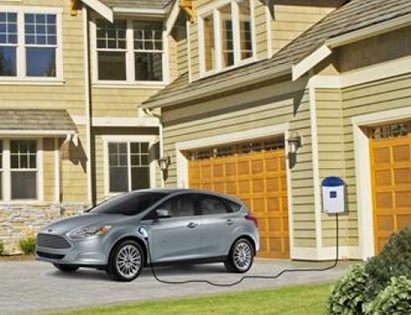 Michigan’s Sustainable Worldwide Transportation just authored
Michigan’s Sustainable Worldwide Transportation just authored  ahead of the 2018 Consumer Electronics Show (CES) in Las Vegas. Aurora Innovation also signed a deal with Hyundai this week, similar to its alliance with VW, to bring its self-driving software into commercial use. Based in Palo Alto, Calif., and Pittsburgh, Penn., Aurora designs and builds self-driving technology, partnering with automakers to integrate, pilot and deploy advanced self-driving platforms into vehicles. Founded by CEO Chris Urmson, Chief Product Officer Sterling Anderson and Chief Technical Officer Drew Bagnell, Aurora is working to solve today’s most complex AI, automation and engineering challenges to improve transportation and positively impact cities. Urmson had played a leading role at Google’s self-driving car unit, before it became Waymo.
ahead of the 2018 Consumer Electronics Show (CES) in Las Vegas. Aurora Innovation also signed a deal with Hyundai this week, similar to its alliance with VW, to bring its self-driving software into commercial use. Based in Palo Alto, Calif., and Pittsburgh, Penn., Aurora designs and builds self-driving technology, partnering with automakers to integrate, pilot and deploy advanced self-driving platforms into vehicles. Founded by CEO Chris Urmson, Chief Product Officer Sterling Anderson and Chief Technical Officer Drew Bagnell, Aurora is working to solve today’s most complex AI, automation and engineering challenges to improve transportation and positively impact cities. Urmson had played a leading role at Google’s self-driving car unit, before it became Waymo.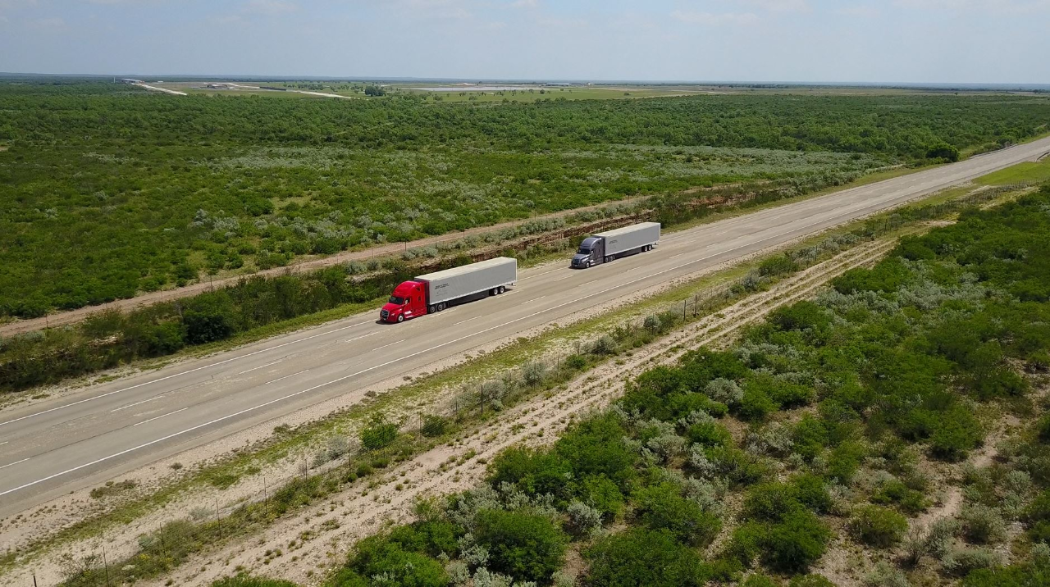 driving cars with huge investments being made for that to take place, according to technologists like Tesla and Embark. Trucking companies may not be as optimistic about the fast pace. Tesla will be showcasing its electric truck with some autonomous capabilities, while Silicon Valley startup Embark has been testing its autonomous trucking technology in a three-way partnership with Ryder and appliance giant Electrolux. CB Insights reports that companies will place about $1 billion in commercial truck autonomous systems this year, 10 times the level of spending three years ago……….
driving cars with huge investments being made for that to take place, according to technologists like Tesla and Embark. Trucking companies may not be as optimistic about the fast pace. Tesla will be showcasing its electric truck with some autonomous capabilities, while Silicon Valley startup Embark has been testing its autonomous trucking technology in a three-way partnership with Ryder and appliance giant Electrolux. CB Insights reports that companies will place about $1 billion in commercial truck autonomous systems this year, 10 times the level of spending three years ago………. 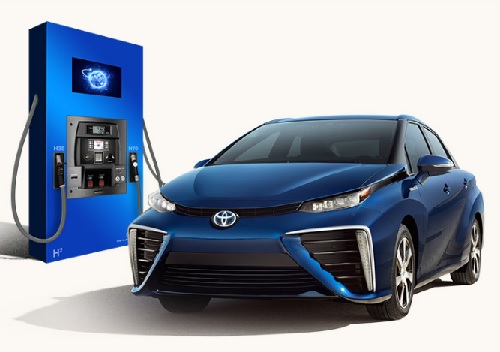 up on fuel cell vehicles, but electric vehicles are in a stronger position for widespread adoption in the marketplace. “Elon Musk is right – it’s better to charge the electric car directly by plugging in,” he said.
up on fuel cell vehicles, but electric vehicles are in a stronger position for widespread adoption in the marketplace. “Elon Musk is right – it’s better to charge the electric car directly by plugging in,” he said.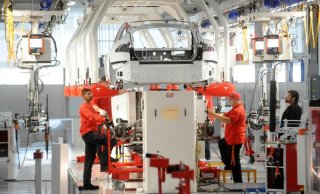 watched Model 3. Perbix, a maker of automated machines used for manufacturing, has been acquired by Tesla after nearly three years of working with the electric carmaker. Tesla has declined to disclose the cost of the acquisition and other details. Tesla will be expanding Perbix’ operations in the Minneapolis area, where the supplier is based. Tesla CEO Elon Musk has recently been making comments about the automation challenges holding up hitting the production timeline that had originally been set for the $35,000 Model 3. In other news, Jon Wagner, Tesla’s director of battery engineering, has left the company and is launching a battery and powertrain startup in California.
watched Model 3. Perbix, a maker of automated machines used for manufacturing, has been acquired by Tesla after nearly three years of working with the electric carmaker. Tesla has declined to disclose the cost of the acquisition and other details. Tesla will be expanding Perbix’ operations in the Minneapolis area, where the supplier is based. Tesla CEO Elon Musk has recently been making comments about the automation challenges holding up hitting the production timeline that had originally been set for the $35,000 Model 3. In other news, Jon Wagner, Tesla’s director of battery engineering, has left the company and is launching a battery and powertrain startup in California.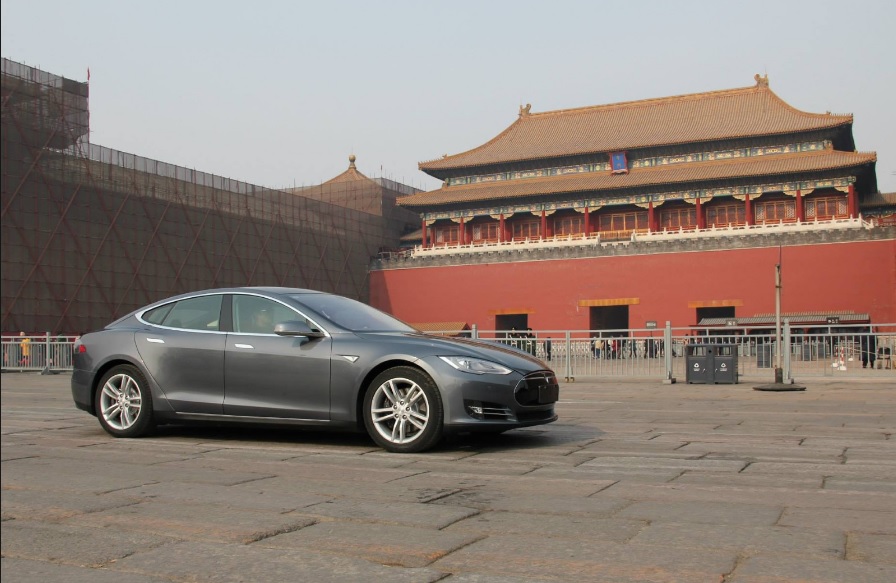 indicating whether an agreement has been met. Those talks were reported to have been underway earlier this year. Tesla would still have to pay the 25% import fee that it’s had all along in China, but the company would have costs reduced not having to ship the cars into that market. It would also allow Tesla to stay true to its identity of being an independent operator by avoiding the traditional joint venture with a Chinese automaker that Tesla’s competitors have been doing for years. China is becoming more flexible to grow its local EV market and remain No. 1 globally, to clean up air pollution in its growing cities, and to free up the nation from foreign oil imports. The electric carmaker has been moving in this direction in recent years, with CEO Elon Musk thinking that it’s the most significant market in the world for company growth. The company now has a 5% stake from Chinse internet company Tencent Holdings, which should support Tesla’s strategy in that market.
indicating whether an agreement has been met. Those talks were reported to have been underway earlier this year. Tesla would still have to pay the 25% import fee that it’s had all along in China, but the company would have costs reduced not having to ship the cars into that market. It would also allow Tesla to stay true to its identity of being an independent operator by avoiding the traditional joint venture with a Chinese automaker that Tesla’s competitors have been doing for years. China is becoming more flexible to grow its local EV market and remain No. 1 globally, to clean up air pollution in its growing cities, and to free up the nation from foreign oil imports. The electric carmaker has been moving in this direction in recent years, with CEO Elon Musk thinking that it’s the most significant market in the world for company growth. The company now has a 5% stake from Chinse internet company Tencent Holdings, which should support Tesla’s strategy in that market.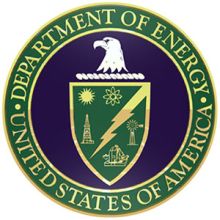 to enable growth in fast charging. It includes electrification projects that will support the development and verification of electric drive systems and infrastructure for what it defines as “extreme fast charging” (400-kW). It’s being done through the DOE’s Vehicle Technologies Office (VTO), which funds early-stage, high-risk research to support improved vehicle efficiency, lowers costs, and increases use of secure, domestic energy sources. It’s part of a VTO-funded report that will be released today, where researchers at Idaho National Laboratory, Argonne National Laboratory, and the National Renewable Energy Laboratory identified technical gaps to bring an extreme fast charging network to the U.S. The
to enable growth in fast charging. It includes electrification projects that will support the development and verification of electric drive systems and infrastructure for what it defines as “extreme fast charging” (400-kW). It’s being done through the DOE’s Vehicle Technologies Office (VTO), which funds early-stage, high-risk research to support improved vehicle efficiency, lowers costs, and increases use of secure, domestic energy sources. It’s part of a VTO-funded report that will be released today, where researchers at Idaho National Laboratory, Argonne National Laboratory, and the National Renewable Energy Laboratory identified technical gaps to bring an extreme fast charging network to the U.S. The 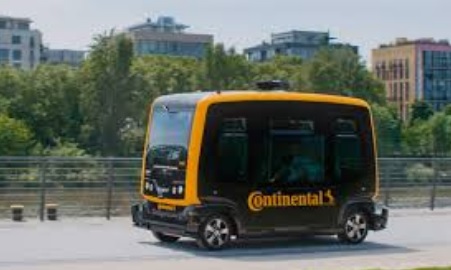 is a testing ground for automated technology that can be supplied to OEMs. The German supplier is watching several OEMs – including General Motors, Ford, Renault-Nissan, and Daimler – making moves toward autonomous mobility services. That might be through an alliance with Lyft, Uber, Maven, Waymo, or another partner committed to the new technology and ride services it has to offer. While the robo-taxi label has stuck in the past year, it’s much more than a taxi ride. This will include shared rides, point-to-point short trips, transporting groups, taxi rides, and shuttle services.
is a testing ground for automated technology that can be supplied to OEMs. The German supplier is watching several OEMs – including General Motors, Ford, Renault-Nissan, and Daimler – making moves toward autonomous mobility services. That might be through an alliance with Lyft, Uber, Maven, Waymo, or another partner committed to the new technology and ride services it has to offer. While the robo-taxi label has stuck in the past year, it’s much more than a taxi ride. This will include shared rides, point-to-point short trips, transporting groups, taxi rides, and shuttle services.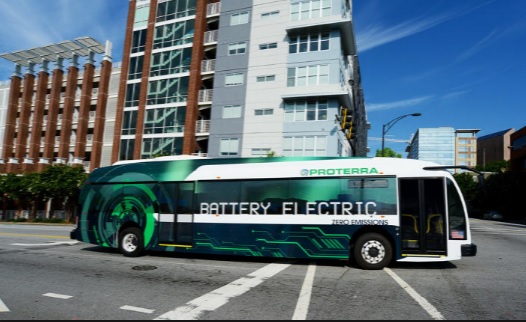 offers a 20% increase in efficiency over Proterra’s standard ProDrive system. For the Catalyst E2 max model, the DuoPower drivetrain enables a nominal range of 426 miles on a single charge, which the company says far exceeds the average distance of North American transit routes. Separately, the company announced that major bus and coach manufacturer
offers a 20% increase in efficiency over Proterra’s standard ProDrive system. For the Catalyst E2 max model, the DuoPower drivetrain enables a nominal range of 426 miles on a single charge, which the company says far exceeds the average distance of North American transit routes. Separately, the company announced that major bus and coach manufacturer